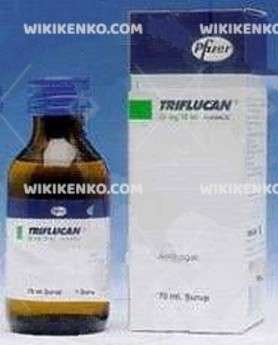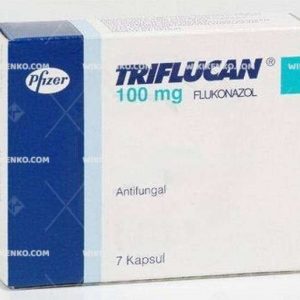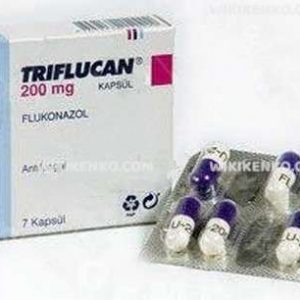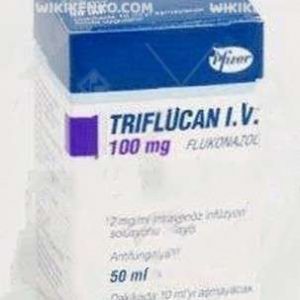Triflucan Syrup
Triflucan Syrup is a medication used in the treatment of fungal infections. It contains the active ingredient fluconazole, which belongs to the class of azole antifungals. In this article, we’ll delve into various aspects of Triflucan Syrup, including its uses, dosage, side effects, and more.
| Dosage form | |
|---|---|
| Pack size | |
| Potency | 50 Mg/10Ml 70Ml |
| Manufacturer | |
| Origin | |
| Generic Name (Ingredient) | Fluconazole 5 Mg |
Assuming your emergency circumstances for this product, visit Urgent Quotation page. Besides, for any pharmaceutical questions, please ask us in the comments section.
Description
Uses of Triflucan Syrup
Triflucan Syrup is indicated for the treatment and management of a wide range of fungal infections, including:
Treatment of Fungal Corneal Ulcers/Keratitis
Triflucan Syrup can be used to treat fungal infections of the cornea, which can lead to vision-threatening complications if left untreated.
Associated Treatment for Various Fungal Infections
Triflucan Syrup may be prescribed as part of the treatment regimen for the following fungal infections:
- Candida intertrigo
- Candida pneumonia
- Candida urinary tract infection
- Candidemia
- Candidiasis
- Coccidioidomycosis
- Esophageal Candidiasis
- Fungal peritonitis caused by Candida
- Meningitis (Cryptococcal)
- Oropharyngeal Candidiasis
- Pruritus and skin irritation due to fungal infections
- Systemic Candida Infections
- Vaginal Candidiasis
- Disseminated Candidiasis
Mechanism of Action
Triflucan, containing the active ingredient fluconazole, inhibits the enzyme lanosterol 14-α-demethylase in susceptible fungi. This leads to the accumulation of lanosterol and decreased levels of ergosterol, altering the cellular membrane composition. The result is increased membrane permeability, leakage of essential elements, and impaired uptake of precursor molecules to DNA.
Specific Activity
Triflucan Syrup is particularly effective against the following fungal species:
- Candida albicans
- Candida glabrata (many strains are intermediately susceptible)
- Candida parapsilosis
- Candida tropicalis
- Cryptococcus neoformans
Dosage and Administration
Triflucan Syrup is available in specific concentrations, such as 5 mg/ml. The dosage should be determined by a healthcare professional based on the specific indication and patient characteristics. It is crucial to follow the prescribed dosing regimen carefully.
Side Effects and Precautions
Common Side Effects
Triflucan Syrup may cause the following common side effects, which usually do not require medical attention:
- Nausea
- Headache
- Rash
Side Effects Requiring Prompt Attention
Patients should seek immediate medical attention if they experience any of the following side effects:
- Allergic reactions, such as skin rash, itching, hives, or swelling of the face, lips, tongue, or throat
- Heart rhythm changes, including fast or irregular heartbeat, dizziness, feeling faint or lightheaded, or chest pain
Patients should inform their healthcare provider about any existing medical conditions or medications they are taking, as Triflucan Syrup may interact with other drugs. Caution is advised during pregnancy and breastfeeding.
Interactions and Contradictions
Triflucan Syrup may interact with other medications, and patients should avoid alcohol during treatment. It is essential to consult a healthcare provider regarding potential drug interactions.
Storage and Trade Name
Triflucan Syrup should be stored according to the package instructions. The medication is available under the trade name Diflucan.
Dosage Information
| Parameter | Details |
|---|---|
| Concentration | Triflucan Syrup is available in specific concentrations, such as 5 mg/ml. |
| Individualized Dosage | Healthcare professionals determine the appropriate dosage based on factors like the type of fungal infection, severity, patient age, weight, and overall health. |
| Prescribed Regimen | It is crucial to follow the prescribed dosing regimen carefully. Always consult your doctor or pharmacist for personalized guidance. |
Interactions with Other Medications
Triflucan Syrup (containing fluconazole) may interact with various other medications, including:
- Alprazolam (used for anxiety)
- Montelukast (a medication for asthma and allergies)
- Diphenhydramine (an antihistamine)
- Duloxetine (an antidepressant)
- Pregabalin (used for nerve pain and anxiety)
- Acetaminophen (a common pain reliever)
- Cyanocobalamin (a form of vitamin B12)
- Ascorbic acid (vitamin C)
- Cholecalciferol (vitamin D)
- Cetirizine (an antihistamine)
Certain antidepressants, such as tricyclic antidepressants (TCAs), selective serotonin reuptake inhibitors (SSRIs), and serotonin and norepinephrine reuptake inhibitors (SNRIs), can also interact with diphenhydramine, an ingredient in Triflucan Syrup.
Patients should always inform their healthcare provider about any existing medical conditions or medications they are taking to ensure safe and effective use of Triflucan Syrup.
Timing of Triflucan Administration
Triflucan Syrup, containing the active ingredient fluconazole, can be taken at any time of day. If taking it for more than one dose, it is recommended to take it at the same time each day to maintain a consistent level of the medication in the body.
Patients can take Triflucan Syrup with or without food, and they should continue using the medication for the full treatment duration, even if they feel better after the first few doses. Stopping too soon may prevent complete clearance of the infection.
Alcohol Consumption and Triflucan
While Triflucan Syrup (fluconazole) does not have a specific drug interaction with alcohol, it is generally not recommended to consume alcohol while recovering from an infection. Alcohol can potentially decrease immune function and worsen medication side effects, such as nausea, diarrhea, and upset stomach.
Fluconazole has a relatively long half-life, remaining active in the body for 6 to 10 days. If patients wish to completely avoid alcohol while the drug is present, they should wait for that duration.
Conclusion
Triflucan Syrup, containing the active ingredient fluconazole, plays a crucial role in the management of a wide range of fungal infections. By understanding its uses, dosage, side effects, and potential interactions, healthcare professionals and patients can ensure the safe and effective use of this medication.
Remember to always consult a healthcare provider for personalized guidance and follow their instructions closely for the best possible treatment outcomes.
Use the form below to report an error
Please answer the questions as thoroughly and accurately as possible. Your answers will help us better understand what kind of mistakes happen, why and where they happen, and in the end the purpose is to build a better archive to guide researchers and professionals around the world.
The information on this page is not intended to be a substitute for professional medical advice, diagnosis, or treatment. always seek the advice for your physician or another qualified health provider with any questions you may have regarding a medical condition. Always remember to
- Ask your own doctor for medical advice.
- Names, brands, and dosage may differ between countries.
- When not feeling well, or experiencing side effects always contact your own doctor.
Cyberchondria
The truth is that when we’re sick, or worried about getting sick, the internet won’t help.
According to Wikipedia, cyberchondria is a mental disorder consisting in the desire to independently make a diagnosis based on the symptoms of diseases described on Internet sites.
Why you can't look for symptoms on the Internet
If diagnoses could be made simply from a textbook or an article on a website, we would all be doctors and treat ourselves. Nothing can replace the experience and knowledge of specially trained people. As in any field, in medicine there are unscrupulous specialists, differences of opinion, inaccurate diagnoses and incorrect test results.






Reviews
There are no reviews yet.